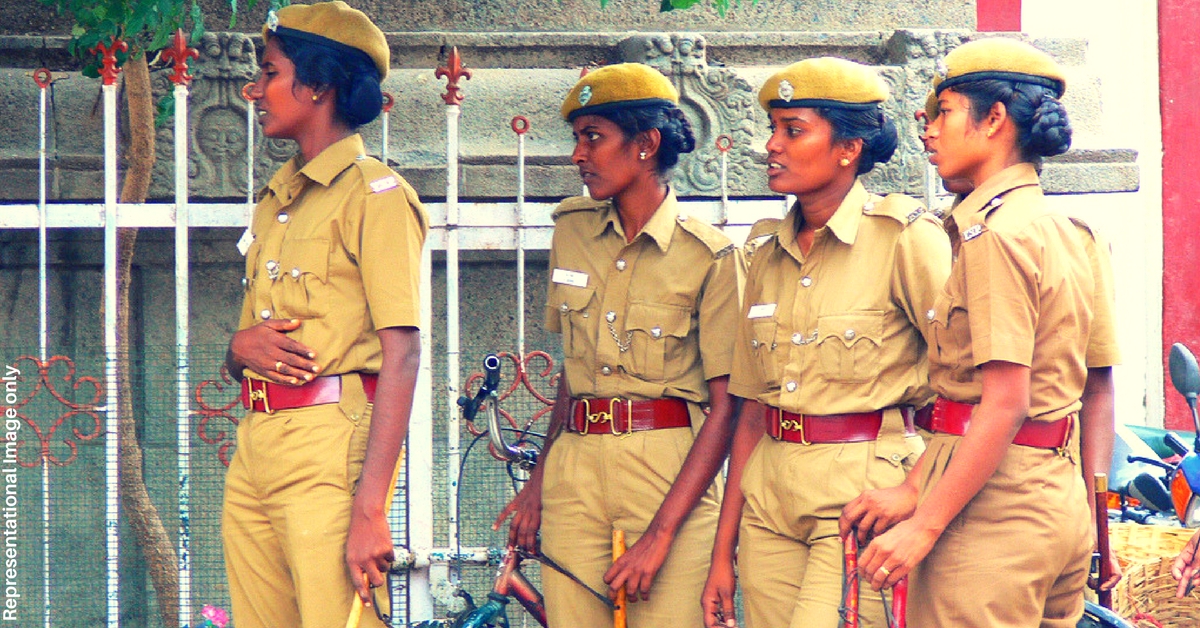Maha Cop Moves Court to Retain Job After Sex-Change Surgery, Emerges Victorious!
When Lata made the decision to undergo a sex reassignment operation and requested a month's leave for the same in September 2017, her plea was insensitively rejected by her superiors the following month.

29-year-old Lalita Salve, hailing from Beed district in Maharashtra joined the police force as a female constable in June 2010.
When Lata made the decision to undergo a sex reassignment operation and requested a month’s leave for the same in September 2017, her plea was insensitively rejected by her superiors the following month.

Her request to continue in service as a male constable post-op fell on deaf ears.
But that did not deter her. She knocked on the doors of the Bombay High Court for her rights, stating in her plea that the doctors who examined her found her suffering from gender dysphoria.
What is gender dysphoria?
Gender dysphoria is a conflict an individual faces between the physical or assigned gender at birth and with the gender they psychologically identify. It is characterised by extreme distress about conforming with the gender they are assigned with and their bodies.
Back to Lata’s case
The Director General of Police had put the onus of deciding Lata’s case on the state government, the home department of which sought a legal opinion.
Lata emerged victorious in her battle to continue her service as a male constable after the state law department said that her case be considered positively and treated as a ‘special case,’ reported The Times of India.
“Salve has been facing biological changes within her body, which is a natural phenomenon. She is not doing so deliberately. Going by this reasoning, her case must be taken positively and treated as an exceptional one,” said a senior official of the law department told TOI.
It isn’t the first time a member of The LGBTQ community is facing discrimination to retain their jobs after deciding to undergo reassignment.
2017 saw a similar issue when for the first time when 26-year-old transgender cop K. Prithika Yashini was recruited by the Tamil Nadu police.
Yashini, who was born a male completed her training as a Sub-Inspector of Police in Tamil Nadu Police Academy, after which she decided to undergo reassignment. When she applied for the post of sub-inspector as transgender after the surgery, the state police rejected it. The matter was further escalated until the Madras high court intervened.
Read more: This 21-Year-Old Vegan Is Bringing Affordable Plant-Based Milk to India!
My take:
It is indeed unfortunate that individuals who decide to undergo reassignment surgeries have to be ‘allowed’ to retain their jobs. Isn’t it a given that anybody regardless of what gender they identify with or adopt, have the right to continue their service anyway?
The surgery only helps the individual finally conquer the internal conflict of gender dysphoria. It doesn’t change who they are or how capable they are of completing a task at hand. Then why must they run from pillar to post and suffer the brunt of a system that glorifies gender inclusion on paper but refuses to do so in real-life situations?
And while the state government’s decision has certainly helped Lata retain a job, the argument still stands, why does her case have to be categorised as ‘special’? Will any other cop after Lata who faces a similar issue, still have to wait for the state to declare their case ‘special’ to retain their jobs?
The minute we categorise this case as ‘special,’ it means we are ‘othering’ the person in question rather than making our own policies gender inclusive. Think about it.
(Edited by Shruti Singhal)
Like this story? Or have something to share?
Write to us: [email protected]
Connect with us on Facebook and Twitter.
NEW: Click here to get positive news on WhatsApp!
If you found our stories insightful, informative, or even just enjoyable, we invite you to consider making a voluntary payment to support the work we do at The Better India. Your contribution helps us continue producing quality content that educates, inspires, and drives positive change.
Choose one of the payment options below for your contribution-
By paying for the stories you value, you directly contribute to sustaining our efforts focused on making a difference in the world. Together, let’s ensure that impactful stories continue to be told and shared, enriching lives and communities alike.
Thank you for your support. Here are some frequently asked questions you might find helpful to know why you are contributing?


This story made me
-
97
-
121
-
89
-
167











